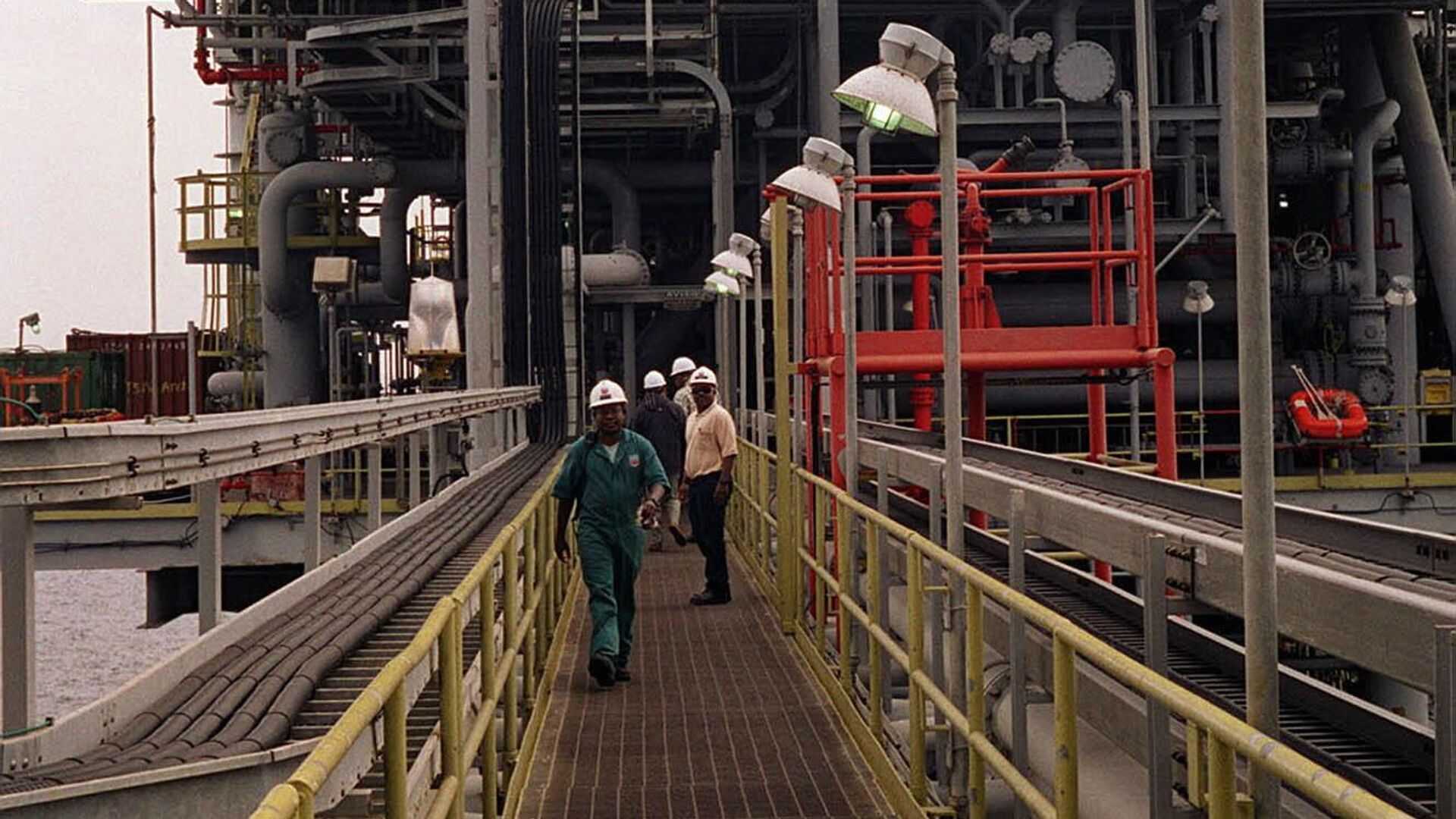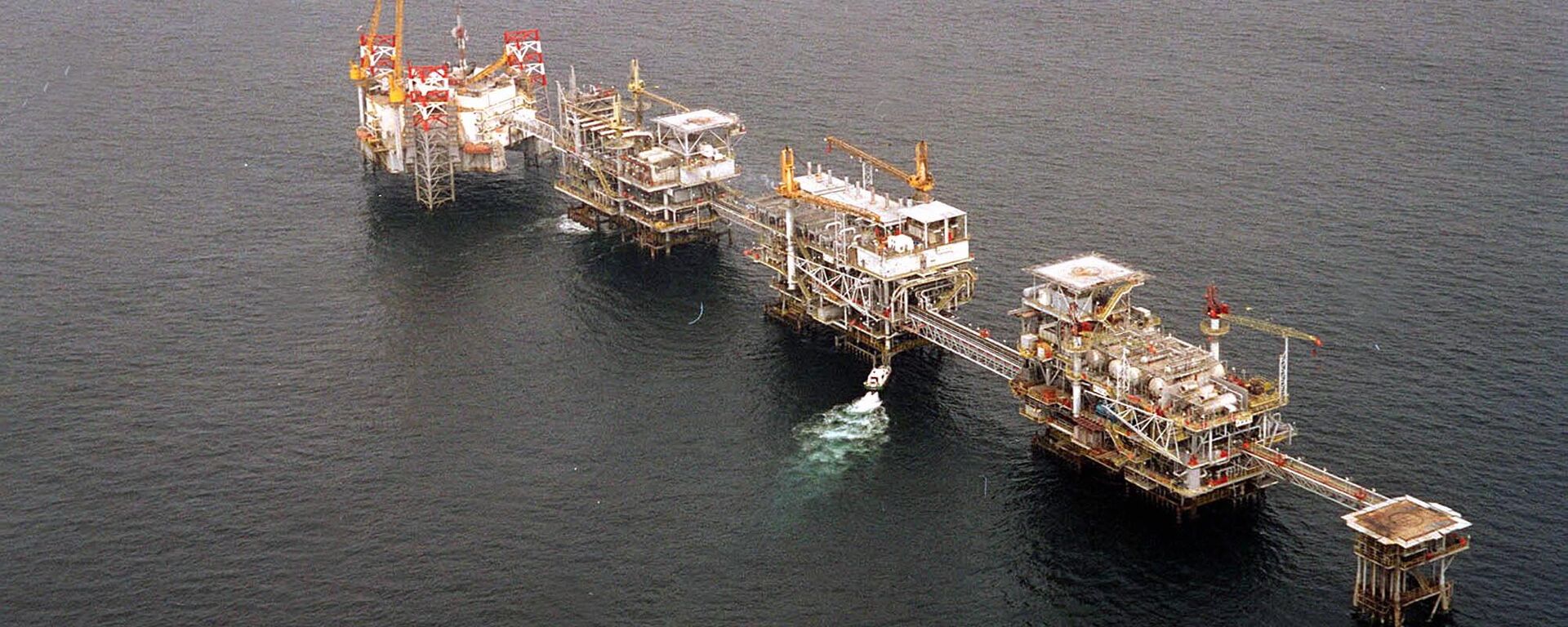https://en.sputniknews.africa/20241030/angolas-cabinda-refinery-to-begin-production-in-march-april-decreasing-reliance-on-fuel-imports-1068945213.html
Angola's Cabinda Refinery to Begin Production in March-April, Decreasing Reliance on Fuel Imports
Angola's Cabinda Refinery to Begin Production in March-April, Decreasing Reliance on Fuel Imports
Sputnik Africa
The completion of the refinery marks a crucial milestone for Angola, as it aims to eliminate fuel subsidies and become less reliant on imported fuels... 30.10.2024, Sputnik Africa
2024-10-30T09:40+0100
2024-10-30T09:40+0100
2024-10-30T10:16+0100
sub-saharan africa
angola
oil
refinery
central africa
industrialization
export
import
https://cdn1.img.sputniknews.africa/img/07e8/0a/1e/1068945328_0:771:1333:1521_1920x0_80_0_0_c1e65b20ae2aefb4cef6e7c041c45c94.jpg
The long-awaited Cabinda oil refinery, Angola's second, is set to be commissioned in January-February 2025, with initial fuel supplies reaching the local market in March-April, Atanas Bostandjiev, CEO of Gemcorp Holdings Limited, the project's largest shareholder, announced on Tuesday.The project, owned 90% by Gemcorp and 10% by state-owned Sonangol, will initially process Angolan Cabinda crude at a rate of 30,000 barrels per day, supplying 5-10% of the country's fuel needs.While the first phase of the refinery has been completed ahead of schedule, it has come in over budget, reaching $500-$550 million due to rising costs attributed to the COVID-19 pandemic and inflation, Bostandjiev noted. The initial estimate was $473 million, with the project originally slated for completion in July 2025.The refinery will initially export fuel oil and naphtha, which cannot be processed locally, while supplying the local market with diesel and jet fuel, according to Bostandjiev. A second phase is planned, expanding processing capacity to 60,000 bpd and adding a diesel and jet fuel-producing hydrocracking unit. Funding for this phase is expected to be finalized in April or May.The project also holds potential for future exports to the Democratic Republic of the Congo in later phases.
https://en.sputniknews.africa/20241026/possibility-of-low-oil-prices-threatens-angolas-economy-countrys-finance-minister-says--1068900361.html
angola
central africa
Sputnik Africa
feedback@sputniknews.com
+74956456601
MIA „Rossiya Segodnya“
2024
Muhammad Nooh Osman
https://cdn1.img.sputniknews.africa/img/07e7/04/0a/1058467512_0:0:1280:1280_100x100_80_0_0_ec723833bcbfcaed2e21952965ad99e4.jpg
Muhammad Nooh Osman
https://cdn1.img.sputniknews.africa/img/07e7/04/0a/1058467512_0:0:1280:1280_100x100_80_0_0_ec723833bcbfcaed2e21952965ad99e4.jpg
News
en_EN
Sputnik Africa
feedback@sputniknews.com
+74956456601
MIA „Rossiya Segodnya“
Sputnik Africa
feedback@sputniknews.com
+74956456601
MIA „Rossiya Segodnya“
Muhammad Nooh Osman
https://cdn1.img.sputniknews.africa/img/07e7/04/0a/1058467512_0:0:1280:1280_100x100_80_0_0_ec723833bcbfcaed2e21952965ad99e4.jpg
angola, oil, refinery, central africa, industrialization, export, import
angola, oil, refinery, central africa, industrialization, export, import
Angola's Cabinda Refinery to Begin Production in March-April, Decreasing Reliance on Fuel Imports
09:40 30.10.2024 (Updated: 10:16 30.10.2024) Muhammad Nooh Osman
Writer/Editor
The completion of the refinery marks a crucial milestone for Angola, as it aims to eliminate fuel subsidies and become less reliant on imported fuels. Currently, Angola exports 98% of its crude oil and imports almost all of its refined products, largely from Europe.
The long-awaited Cabinda oil refinery, Angola's second, is set to be commissioned in January-February 2025, with initial fuel supplies reaching the local market in March-April, Atanas Bostandjiev, CEO of Gemcorp Holdings Limited, the project's largest shareholder, announced on Tuesday.
The project, owned 90% by Gemcorp and 10% by state-owned Sonangol, will initially process Angolan
Cabinda crude at a rate of 30,000 barrels per day, supplying 5-10% of the country's fuel needs.
While the first phase of the refinery has been completed ahead of schedule, it has come in over budget, reaching $500-$550 million due to rising costs attributed to the COVID-19 pandemic and inflation, Bostandjiev noted. The initial estimate was $473 million, with the project originally slated for completion in July 2025.
The refinery will initially export fuel oil and naphtha, which cannot be processed locally, while supplying the
local market with diesel and jet fuel, according to Bostandjiev.
A second phase is planned, expanding processing capacity to 60,000 bpd and adding a diesel and jet fuel-producing hydrocracking unit. Funding for this phase is expected to be finalized in April or May.
The project also holds potential for future
exports to the Democratic Republic of the Congo in later phases.



